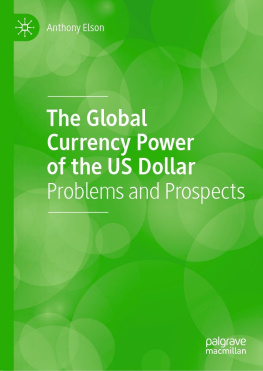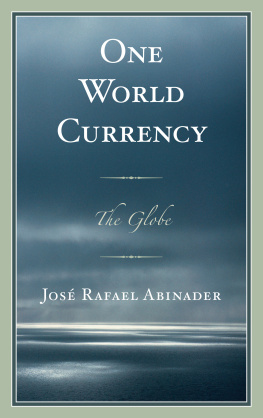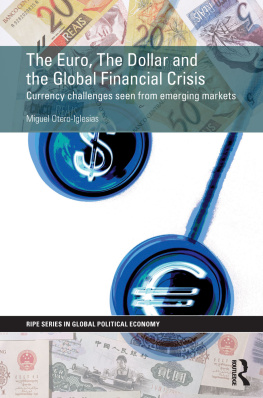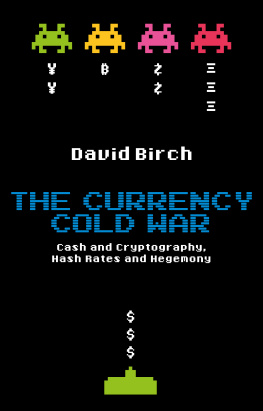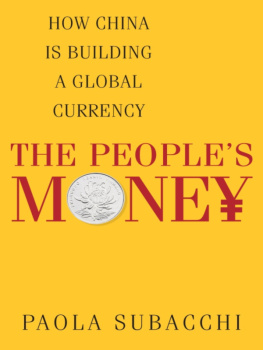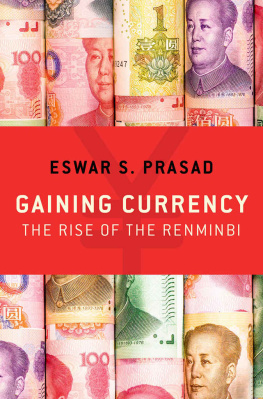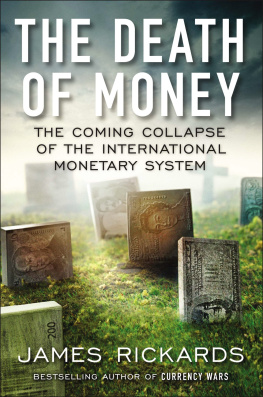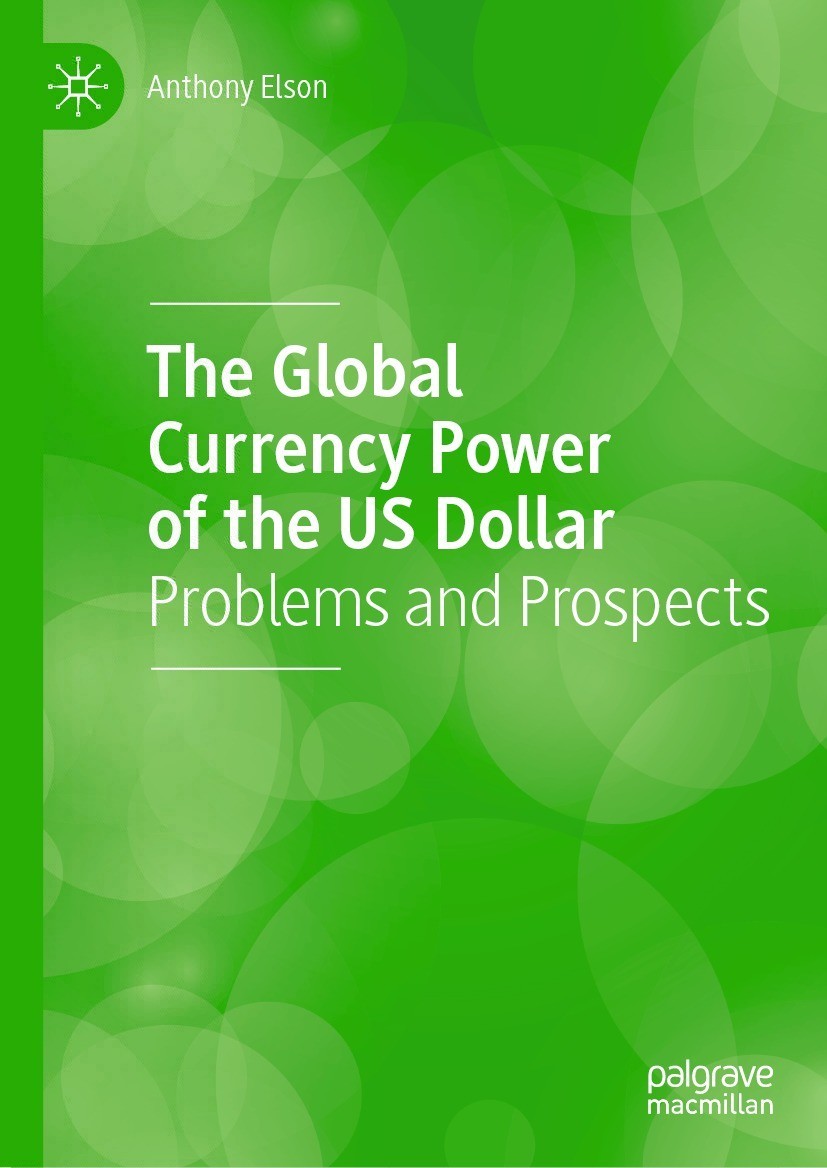Anthony Elson
The Global Currency Power of the US Dollar
Problems and Prospects
1st ed. 2021

Logo of the publisher
Anthony Elson
School of Advanced International Studies, Johns Hopkins University, Washington, DC, USA
ISBN 978-3-030-83518-7 e-ISBN 978-3-030-83519-4
https://doi.org/10.1007/978-3-030-83519-4
The Editor(s) (if applicable) and The Author(s), under exclusive license to Springer Nature Switzerland AG 2021
This work is subject to copyright. All rights are solely and exclusively licensed by the Publisher, whether the whole or part of the material is concerned, specifically the rights of translation, reprinting, reuse of illustrations, recitation, broadcasting, reproduction on microfilms or in any other physical way, and transmission or information storage and retrieval, electronic adaptation, computer software, or by similar or dissimilar methodology now known or hereafter developed.
The use of general descriptive names, registered names, trademarks, service marks, etc. in this publication does not imply, even in the absence of a specific statement, that such names are exempt from the relevant protective laws and regulations and therefore free for general use.
The publisher, the authors and the editors are safe to assume that the advice and information in this book are believed to be true and accurate at the date of publication. Neither the publisher nor the authors or the editors give a warranty, expressed or implied, with respect to the material contained herein or for any errors or omissions that may have been made. The publisher remains neutral with regard to jurisdictional claims in published maps and institutional affiliations.
This Palgrave Macmillan imprint is published by the registered company Springer Nature Switzerland AG
The registered company address is: Gewerbestrasse 11, 6330 Cham, Switzerland
To Queenie
For her True Love and Friendship,
her Indomitably Positive and Generous Spirit,
and
her Unhalting Support of my Professional Work
Preface
This is the fifth book with a focus on a different aspect of globalization that I have written over the last 12 years. The work global or globalization appears in the title for all of them. In one sense, this output is a natural reflection of my interests in various themes of international economics that I have developed over a long career beginning with my graduate training in international affairs and economics at Columbia University, many years of service on the professional staff of the IMF, work as a consultant with the World Bank, and teaching at Duke, Johns Hopkins and Yale Universities.
In another sense, each of these books has a link with one of its predecessors, as in the preparation of each of them I discovered that there was a topic that I touched on in each one that I wanted to explore in more depth in a subsequent book. In my third book on the global financial crisis, I wanted to examine in much more detail, and with the benefit of time and further knowledge, a topic that I examined more briefly in 20092010 in the immediate wake of the crisis, when I was writing my first book. In this particular book, the key role of the US dollar as the de facto currency for the global economy was a topic that I touched on briefly in my previous book on the role of the United States in the global economy.
The subject of the dollar as a global currency is a fascinating topic, as our understanding of its role continues to evolve and the future prospects for its duration are often questioned. This book hopefully contributes in a useful, interesting and significant manner to this important topic. Since the early 1970s when the Bretton Woods system of the early post-World War II era broke down, the dollar has served as the main currency of the global economic and financial system by fiat, i.e., without any basis in treaty, as a reflection of the hegemonic role of the United States in that system and the convenience that private traders and institutions have found in using the dollar for cross-border transactions. This special role of the dollar has intensified with the expansion of economic and financial globalization in the last few decades. This book attempts to explain how this situation developed and the factors that have helped to keep it in place. The book also examines a number of defects and potential threats to the stability of the global financial system that can be associated with the current dollar-based reserve currency system. It then examines three different scenarios that could deal with those threats; the prospects for each of these should become clearer during the remainder of the current decade.
As much as possible, I have tried to make this book a self-contained exposition, where technical terms are spelled out rather than included with an assumption that they are familiar to the reader. As a result, I am hopeful that the book will appeal to a wide range of readers from students of public policy to a general audience with an interest in the role of the United States in the global economy, as well as to practitioners in the fields of foreign affairs and business who are not specialists in international economics and finance.
Anthony Elson
Washington, USA
Previous Titles by This Author
Governing Global Finance: The Evolution and Reform of the International Financial Architecture (2011)
Globalization and Development: Why East Asia Surged Ahead and Latin America Fell Behind (2014)
The Global Financial Crisis in Retrospect: Evolution, Resolution and Lessons for Prevention (2017)
The United States in the World Economy: Making Sense of Globalization (2019)
Glossary
BIS
Bank for International Settlements
CBDCs
central bank digital currencies
CDOs
collateralized debt obligations
CFETS
China Foreign Exchange Trade System
CHIPS
Clearinghouse Intl Payments System (USA)
CIPS
Cross-border Interbank Payments System (China)
DCEP
Digital Currency/Electronic Payment (China)
ECB
European Central Bank
EMDEs
emerging and developing economies
EMU
European Economic and Monetary Union (eurozone)
EPU
European Payments Union
FSB
Financial Stability Board
G7/G10/G20
Group of 7/10/20 nations
GATT
General Agreement on Tariffs and Trade
GFSN
Global Financial Safety Net
GVCs
global value chains
ICU
International Credit Union
ILOLR
international lender of last resort
IMF
International Monetary Fund
INSTEX
Instrument in Support of Trade Exchanges
MBS
mortgage-backed securities
MMT
Modern Monetary Theory
NIIP
net international investment position
PBOC
Peoples Bank of China
RCEP
Regional Comprehensive Economic Partnership
REPO
repurchase agreement
SDRs
Special Drawing Rights (IMF)
SIFMA
Securities Industry and Financial Markets Association
SWIFT
Society for Worldwide Interbank Financial Telecommunication
TAA
Trade Adjustment Assistance
TPP
Trans Pacific Partnership
WHO
World Health Organization
WTO
World Trade Organization

